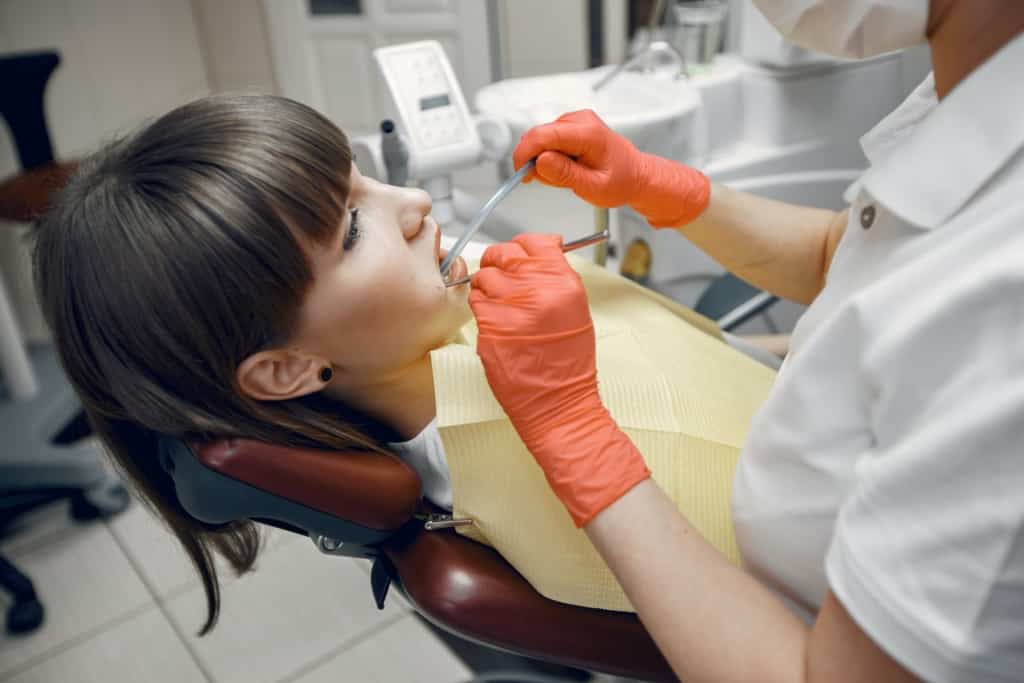What is a dental bridge?
A dental bridge is a false tooth, known as a pontic, which is fused between two crowns to fill in the space of a missing tooth. The two crowns holding it in place are attached to existing teeth or implants. This procedure is used to prevent other teeth from shifting position.

What are the benefits of a dental bridge?
A bridge can also restore your smile and help to maintain the shape of your face. The benefits of a dental bridge include:
- Maintaining the natural alignment of your teeth
- Preventing teeth from shifting out of place
- Restoring your smile
- Improving the function of your bite
- Maintaining the shape of your face
How many years does a dental bridge last?
A dental bridge can last for many years, depending on how well it is cared for. Proper oral hygiene, including brushing and flossing, is essential to maintain the longevity of a dental bridge. It is also important to see a dentist regularly for checkups and cleanings. With proper care, a dental bridge can last for many years.
Recommended post: How to brush & floss your teeth properly
Can I mouthwash with a dental bridge?
If you have a dental bridge, you may be wondering if you can use mouthwash to keep your mouth clean. The answer is yes! You can use mouthwash with a dental bridge to help keep your teeth and gums healthy. Be sure to choose a mouthwash that is alcohol-free and gentle on your teeth and gums.
How is a dental bridge attached to the teeth?
A dental bridge is a fixed (non-removable) appliance used to replace one or more missing teeth by joining an artificial tooth permanently to adjacent teeth. Bridges are supported by natural teeth, implants, or a combination of both.
There are several types of bridges that your dentist can recommend based on your particular situation. The most common type of bridge is called a traditional bridge. It consists of an artificial tooth called a pontic, which is attached to crowns that are placed on the adjacent teeth (abutment teeth).
Can I eat normally with a dental bridge?
You can eat normally with a dental bridge, but there are a few things you should keep in mind. First, be sure to brush and floss your teeth thoroughly, especially around the base of the bridge. This will help prevent plaque buildup and keep your gums healthy.
Secondly, avoid hard or sticky foods that could damage the bridge. If you have any questions or concerns about eating with a dental bridge, be sure to ask a dentist near you.
How do I clean my removable dental bridge?
If you have a removable dental bridge, it is important to clean it regularly to prevent plaque buildup and maintain oral hygiene. To clean your bridge, soak it in a denture cleaner or mild soap for about 15 minutes. Use a soft-bristled toothbrush to gently brush away any plaque or debris. Rinse your bridge thoroughly with water before putting it back in your mouth.
Can I get a dental bridge on the front teeth?
Yes, it is possible to get a dental bridge on your front teeth. This procedure is typically used to replace one or more missing teeth. The bridge is made up of two crowns that are placed on the teeth adjacent to the empty space, and then a false tooth (or pontic) is placed in between. This type of restoration can help improve your smile and make it easier to eat and speak.
Can a cracked dental Bridget be repaired?
A cracked dental bridge can indeed be repaired. However, the degree of repair will depend on the severity of the crack.
For instance, a small crack may only require bonding or filling material, while a more severe crack may require the dental bridge to be replaced entirely. In any case, it is best to consult with a dentist to determine the best course of repair for your particular situation.
How to take care of a dental bridge?
Here are a few tips on how to take care of your new dental bridge:
- Be sure to brush twice a day and floss once a day. This will help keep your teeth and gums healthy and prevent plaque buildup.
- Avoid eating hard or sticky foods that can damage your dental bridge or cause it to become loose.
- See your dentist regularly for checkups and cleanings. This will help ensure that your dental bridge stays in good shape and lasts for many years.
How does a dental bridge help in relieving pain?
A dental bridge is a great way to relieve pain. The bridge helps to keep the teeth in place and prevents them from moving around. This can help to reduce the amount of pain that is felt.
The bridge can also help to hold the jaw in place and prevent it from moving. This can help to reduce the amount of pain that is felt in the jaw.
Is getting a dental bridge painful?
The process of getting a dental bridge is not painful, but it can be uncomfortable. First, the dentist will numb the area around the tooth that is being replaced.
Then, they will use a drill to remove the tooth and any surrounding tissue.
Next, they will place the dental bridge in the space and secure it with dental cement.
Finally, they will make sure that the bridge fits properly and make any necessary adjustments.

